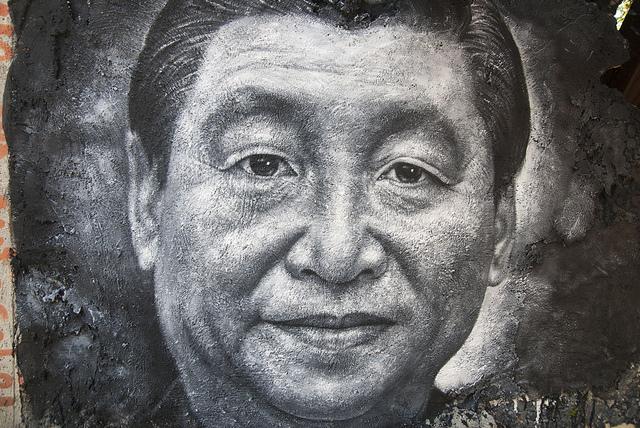Honour, prestige and restraint
Posted By Nick Bisley on August 4, 2014 @ 14:30
This energetic debate began with Peter Jennings taking issue [2] with Hugh White’s gloomy prognostications about where Australia’s enthusiasm for closer strategic cooperation with Japan might lead. For Peter, the basic structure of the current order remains the best way of stabilising the region now and it’s durable over the longer run because China’s interests are served by those arrangements. In its simplest form, the central question in this debate is whether the regional status quo is sustainable over the medium-to-longer term. Hugh thinks not [3], almost everyone else seems to think it is—albeit with subtle differences of emphasis.
Hugh thinks China’s scale, ambition and capacity can’t be incorporated in the current order; China requires accommodation in a new setting. Somewhat surprisingly, Rod Lyon makes a more normative argument [4]: the liberal qualities of the current order are crucial and shouldn’t be sacrificed on the altar of power politics. Andrew Phillips focuses on China’s lack of options [5]. As he puts it, China’s capacity to transform, undermine or leave the current order is much more limited than many imagine.
Andrew’s right that the PRC can’t opt out of the current arrangements in the short term and that its ability to provide an alternative so far has been unconvincing. The GFC accelerated China’s visibility as an international power and has forced it to confront those thorny questions much earlier than it might otherwise. For the moment, its order-producing capacities are limited, but we shouldn’t assume that’ll last forever.
Most crucially, Andrew’s concluding observation—that the current arrangements are easy to join and hard to overturn—doesn’t resonate in Beijing. For the residents of Zhongnanhai, the current order is hard to swallow. Andrew and others have argued that the regional order isn’t made in one place. Instead it’s a more globalised product with inputs from multiple countries. Yet that overstates the impact of those non-Washington sourced inputs, and ignores the belief that the current arrangements, whatever their origins, privilege American interests and entrench Chinese disadvantage. Perceptions matter, and are bound up in the domestic political program of the Chinese Communist Party.
Hugh’s argument is most compelling in its insistence that China isn’t a power like any other. While international politics is most emphatically not subject to the laws of nature, the idea of gravity is instructive here. China’s heft, its civilisational legacy and its ambition mean that we have to work hard to explain why a set of arrangements established in the 1970s is going to continue to function as it has in the past with this new body in its midst. One of the main problems in the current efforts to manage China’s rise is Beijing’s perception that it’s faced with a ‘take it or leave it’ proposition: here’s a regional order that works for you and us, Beijing, buy the ticket and everyone wins. Yet China doesn’t see things in the same way. It sees an order in which American advantage is entrenched, its trade and energy flows are vulnerable to predation, and its interests are constrained.
As China grows, and it will for at least another decade, its sense of frustration won’t abate and it may grow. Xi Jinping is the strongest and most nationalistic president China has had since Mao. It’s inconceivable that during his leadership China will suddenly have a Damascene conversion to the delights of US primacy. As a result China will continue to resent structures it believes are stacked against it, it’ll continue to develop alternatives, and it’ll continue to test the order in carefully calculated ways.
China’s view of the region is strongly influenced by questions of honour and prestige. The century of shame and humiliation retains strong political salience because of its role in the CCP’s domestic narrative. For Beijing, finding a regional order with which it’s content requires those deeper issues of prestige and honour to be satisfied, as well as its interests. That’s disconcerting—compromise on such questions is especially difficult.
Still, the premium placed on non-material factors oddly provides an opportunity as well as a risk. The task at hand is to think about how the structural basis of the current order can be opened up to provide China with the opportunity to stake a claim in that order, one that retains its liberal qualities, while recognising China’s distinctive needs and interests. The problem is that the posture that the US, Australia, Japan and others are taking closes off those opportunities. Here Bob O’Neill’s always-sensible advice [6] is timely. Instead of overheated and tired rhetoric about ‘negotiating from strength’, diplomatic language should be prudent, cautious and respectful. Most importantly, the underlying structures of regional order need more flexibility than they currently enjoy. Without those attributes, I think at some point in the medium-term future China will test the current arrangements in an existential way.
Nick Bisley [7] is executive director, La Trobe Asia and editor in chief of the Australian Journal of International Affairs. Image courtesy of Flickr user thierry ehrmann [8].
Article printed from The Strategist: https://aspistrategist.ru
URL to article: /honour-prestige-and-restraint/
URLs in this post:
[1] Image: https://aspistrategist.ru/wp-content/uploads/2014/08/9918515283_e42453673a_z.jpg
[2] taking issue: https://aspistrategist.ru/wrong-turn-on-the-white-road/
[3] Hugh thinks not: https://aspistrategist.ru/reader-response-wrong-turn-on-the-white-road/
[4] a more normative argument: https://aspistrategist.ru/analysing-the-china-choice/
[5] China’s lack of options: https://aspistrategist.ru/chinas-choices-in-a-more-contested-asia/
[6] sensible advice: https://aspistrategist.ru/china-and-japan-strengthening-peace-in-the-pacific/
[7] Nick Bisley: http://www.twitter.com/nickbisley
[8] thierry ehrmann: https://www.flickr.com/photos/home_of_chaos/9918515283
Click here to print.
